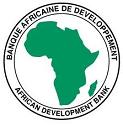Governments and agencies in Africa and at the international level are making concerted efforts to ensure that food insecurity is addressed in Africa and beyond. Part of the efforts is the dedication of the Africa Development Bank, AfDB, to grant financial support to governments and institutions that are involved in the production of food in the continent. In the latest development, Dr. Akinwumi Adesina, President, African Development Bank has revealed a $25 billion program to transform agriculture by providing high performing agricultural technologies for 40 million farmers in Africa. This is done with a purpose to make Africa self-sufficient in food by the year 2030.
He stated the Bank’s successes in helping member-countries tackle the negative effects of climate change, which is done through financial investments and its flagship Technologies for African Agricultural Transformation (TAAT) programme.
Dr. Adesina disclosed this while delivering a lecture on ‘Food Security and Financial Sustainability in Africa’ at the Council of Anglican Provinces of Africa, CAPA, retreat in Abuja. The AfDB chief executive, who was formerly a minister of Agriculture in Nigeria, said TAAT has helped Ethiopia to become a net exporter of wheat within five years, and it has significantly increased Sudan’s wheat production, as well as supported countries in Eastern and Southern Africa to continue producing food in the face of a prolonged drought.
He said, “Together with the Islamic Development Bank and the International Fund for Agricultural Development, we have provided $520 million to support the establishment of Special Agricultural Processing Zones, which will allow private agribusinesses to establish industries that process and add value to agricultural commodities.”
The intervention by the bank is not limited to the establishment of agricultural processing zones, Adesina also said, “AfDB provided $134 million to Nigeria for emergency food production to help drive down food price inflation, by significantly boosting the local production of wheat, and cassava, under the national Agricultural Growth Scheme.”
He urged the Nigerian government to take advantage of the Bank’s investments and support for African farmers; show greater determination and commitment to achieving food self-sufficiency, and to incentivize private sector agribusinesses.
To support Africa’s ambitions to move up the global agricultural value chains, the African Development Bank Group and its partners are supporting the development of 28 Special Agro-Industrial Processing Zones (SAPZs) in 11 countries, with $4.5 billion dollars mobilised so far.
Speaking on behalf of the Chairman of the Council of Anglican Provinces of Africa and Bishop of Northern Zambia, the Most Reverend Albert Chama, the Archbishop of the Anglican Church of Kenya, the Most Reverend Dr. Jackson Ole Sapit, called for greater cooperation between the Bank Group and the Anglican Church. “The African mind must be at the center of solving African problems. If the African Development Bank mobilises resources for the African continent, and the Church also mobilises resources for holistic transformation, we can achieve a lot working together – and make a difference,” Ole Sapit said.












